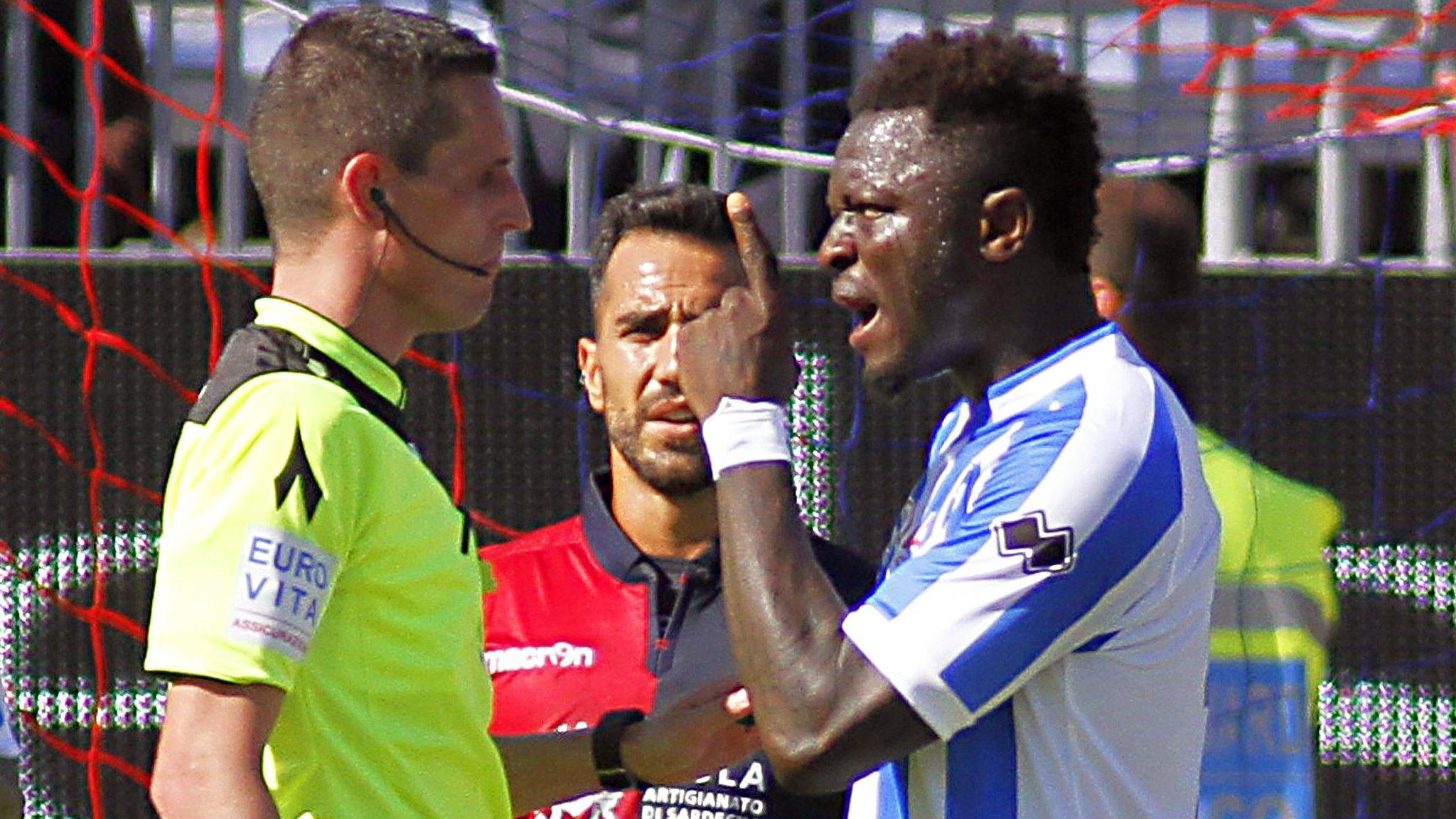Sulley Muntari says Fifa and Uefa 'not taking racism seriously'
- Published
Uefa not addressing 'serious issue' of racism
Ghanaian midfielder Sulley Muntari says he would walk off the pitch again, adding that Fifa and Uefa are "not taking racism seriously".
The Pescara player, 32, was sent off after leaving the field claiming he was racially abused during a Serie A game.
In a BBC interview, the ex-Portsmouth player claims racism is "everywhere and getting worse", and encourages players to go on strike to combat it.
"I went through hell, I was treated just like a criminal," he said.
"I went off the field because I felt it wasn't right for me to be on the field while I have been racially abused," he told BBC Sport's David Ornstein.
Muntari was initially banned for one game after asking referee Daniele Minelli to stop the Italian top-flight game at Cagliari on 30 April.
The ex-Ghana international was instead booked for dissent in the 89th minute, prompting him to leave the pitch in protest, and he then received another yellow card.
He angrily confronted Cagliari fans, shouting: "This is my colour."
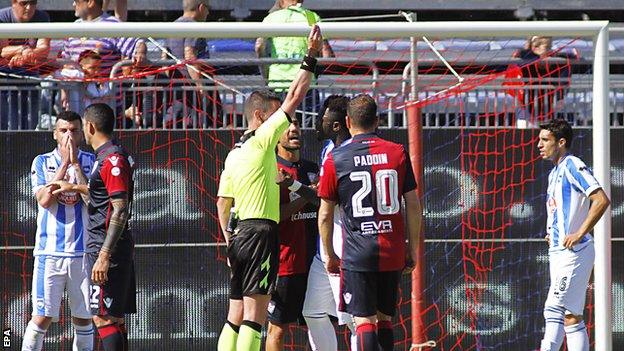
Sulley Muntari has also played for Portsmouth, Sunderland and Inter Milan
Muntari had the one-match ban overturned after the Italian Football Federation (FIGC) said it had considered the "particular delicacy" of the case.
He says he would walk off the pitch again if he was racially abused and he has urged other players to do the same.
"If I had this problem today, tomorrow or the next game I would go off again," he said.
"And I'd recommend it to others. If they are not feeling it they should walk off."
Italian football's reputation around the world has been damaged by the incident, said FIGC anti-racism advisor Fiona May before Muntari's suspension had been reversed.
Meanwhile, Juventus' Morocco defender Medhi Benatia cut short a post-match television interview on Sunday after claiming to hear a racist insult in his earpiece.
'I want Infantino to fight racism'
World governing body Fifa and Uefa, its European counterpart, point out that the Muntari case was dealt with by the FIGC.
Muntari believes the two organisations are "not taking racism seriously", but backs Fifa president Gianni Infantino, who replaced Sepp Blatter in February 2016.
"Fifa and Uefa only care about what they want to care about. If they want to fight racism they should be able to jump right in and tackle it," he said.
"But they have nothing to say about it. This is a big deal.
"Maybe the new president Infantino will do something about it. He has a different mind.
"I think he is capable of doing something in a good way to fight racism. I want him to fight racism."
A Uefa statement said: "The fight to eliminate racism, discrimination and intolerance from football is a major priority for our organisation.
"Uefa condemns such deplorable behaviour and has always shown zero tolerance for any form of racism and discrimination."
Last week, Fifa said it would "like to express full solidarity with Muntari."
"Any form of racism on or outside the field is totally unacceptable and has no place in football. As to the disciplinary consequences, this falls under the jurisdiction of the relevant national body," it added.
'Other countries need to follow England's example'
Former Portsmouth and Sunderland player Muntari says he never experienced racist abuse in the Premier League and has urged other countries to follow England's example of combating the problem.
"I never heard anything like that in England because I think they don't tolerate it," he said.
"The people who are racist are really scared to do it in a stadium because they will get prosecuted or banned. But in Italy they go free.
"England is the example for the world. If a country doesn't tolerate it then it means you get rid of it."
Foreign players are more likely to experience some form of discrimination than domestic footballers, a survey by world players' union Fifpro found in 2016.
The survey, of nearly 14,000 players in 54 countries, found that 17.2% of players based abroad have experienced discrimination, with the figure rising to 32% in Italy.
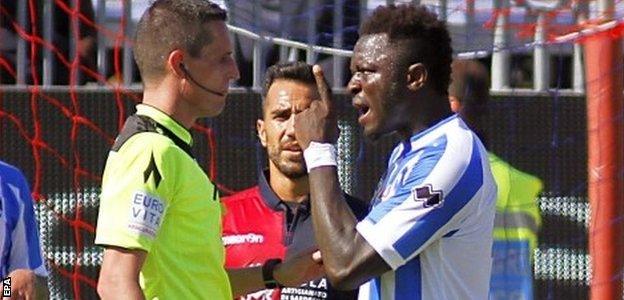
Muntari argued his case with referee Daniele Minelli
'Huge respect' for Crooks
Muntari said his ban was overturned after an outpouring of support, and he praised former Tottenham striker Garth Crooks who had called on players in the Italian league to strike if his one-match suspension had not been withdrawn.
"Last week I heard a comment from the ex-Tottenham player and I was really pleased with that - saying if they don't lift my ban all the players should go on strike - that's a brave move right there," he said.
"He changed a lot of things by saying that, he changed a lot. I really have great respect for him. He has just fought maybe a per cent of racism right there by speaking out.
"All players, if they think it's right and we want to fight racism, we have to come together and do it."
Analysis - 'Anger replaced by calm'
BBC Sport's David Ornstein
We arranged to meet Sulley Muntari in Milan, a city he and his wife love in a country they adore. They feel at home - accepted, respected, happy. An ideal place to raise their two-year-old son.
Muntari suggested his favourite hotel in the centre of town, where the tranquillity inside contrasted to the bustle all around; an environment that aptly reflects how the Ghanaian himself was feeling after a week he described as "hell".
Eight days after he was abused by spectators watching him playing a game of football, handed a one-match ban for protesting and walking off the pitch - only for that ban to be rescinded after an outpouring of support - Muntari was serene. Anger was replaced by calm, confusion by clarity.
He was energised, passionate and articulate. He has turned negative into positive and is desperate to use his experience as a defining moment in the fight against discrimination.
- Published7 May 2017
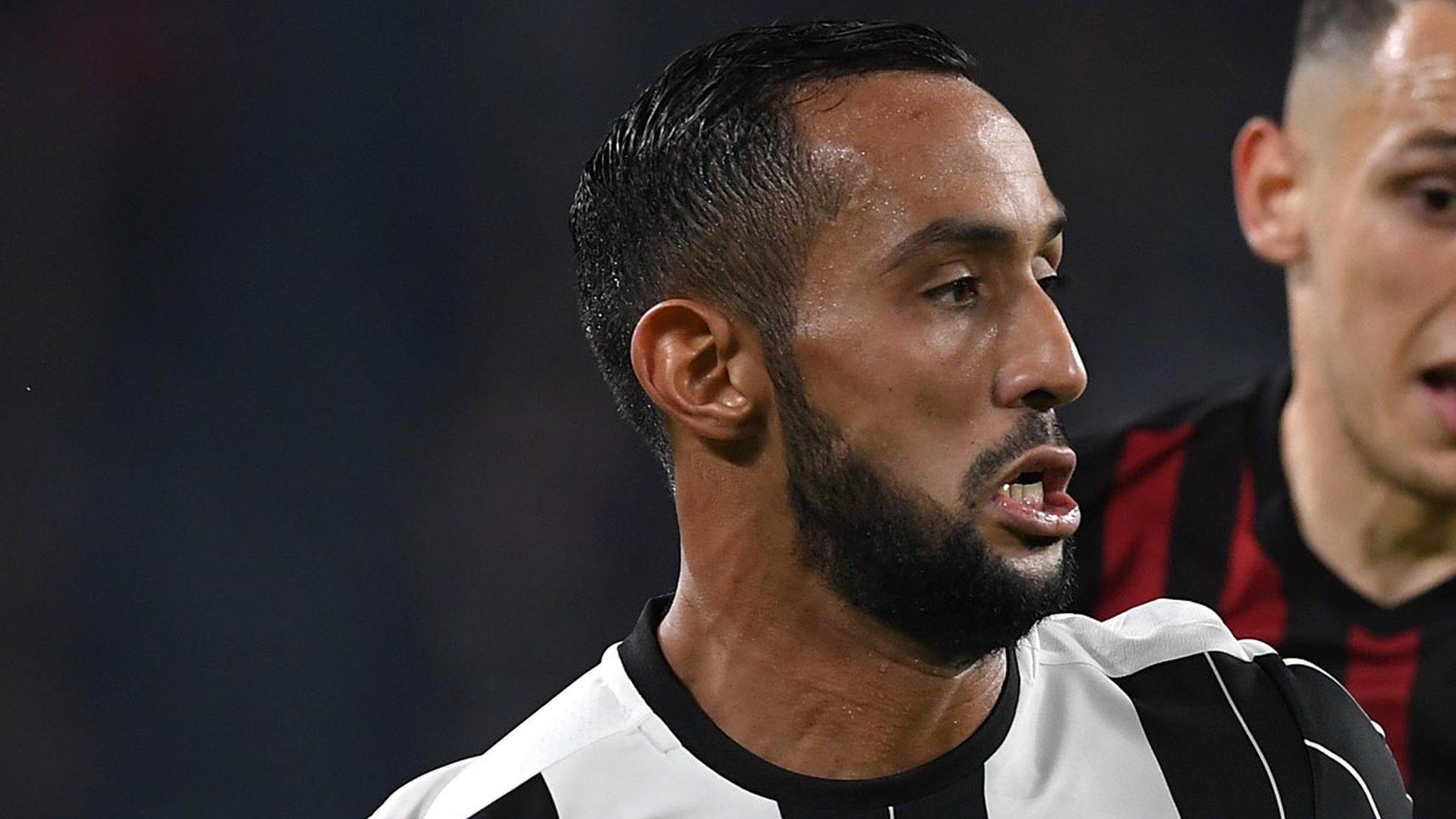
- Published6 May 2017
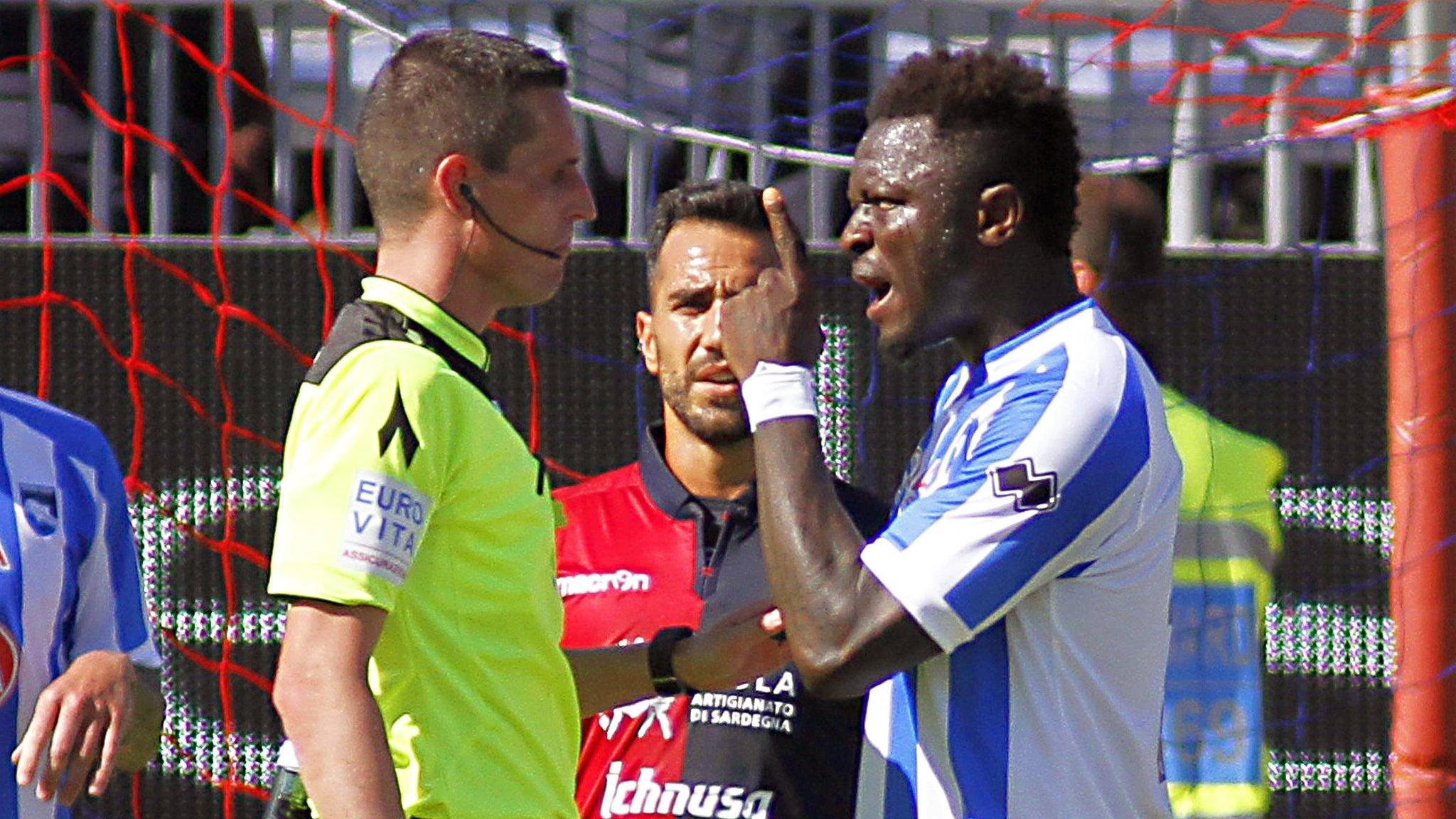
- Published4 May 2017
